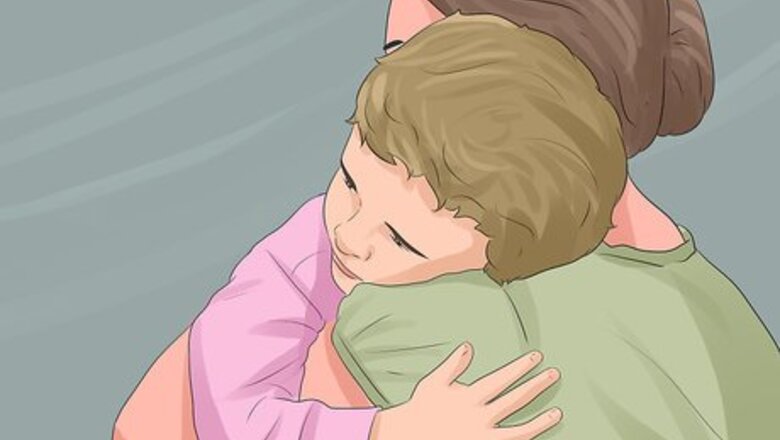
views
X
Expert Source
Ni-Cheng Liang, MDBoard Certified Pulmonologist
Expert Interview
It is important that all children with croup be evaluated by a doctor. Croup may be uncomfortable and scary for your child, but there are several things you can do to help them feel better. Easing your child's breathing and using over-the-counter pain medications can help to treat the symptoms of croup. Encouraging your child to rest and giving them plenty of fluids will help them to heal quickly.
Easing Your Child's Breathing
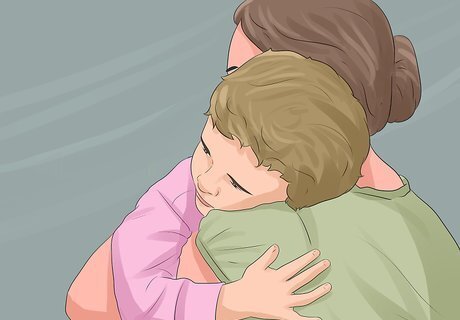
Try to keep your child calm. Croup makes it harder for your child to breathe due to an inflamed airway. If your child is overly-excited or crying, this will make the symptoms worse, and it will become even harder for them to breathe. Attempt to keep your child as calm and still as possible. Try holding and cuddling your child if they are upset. If it helps, try singing a lullaby, reading a favorite book, or watching a soothing film. The goal is to keep them as peaceful as is possible when they feel poorly. Try giving your child a favorite toy and encouraging them to play gently with it. Or, attempt to play a quiet game with your child to keep them still and calm.
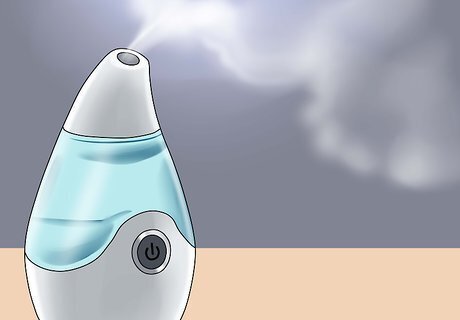
Use a humidifier to moisten the air. Many parents and doctors claim that moistening dry air will reduce a child's cough and make it easier for them to breathe. A cool-mist humidifier will add moisture to dry air and may reduce your child's symptoms.
Be diligent about cleaning the humidifier thoroughly to avoid mold growth. If you are uncertain for how long to use the humidifier, check with your doctor.
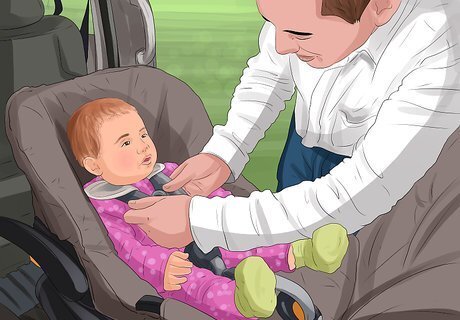
Use cool air to alleviate shortness of breath. Many parents have discovered that cool air can help make it easier to breathe. If the weather is decent, take your child outside for a short time. If your child enjoys the car, them for a short ride with the windows down. They will get the cool, fresh air, and the car ride may soothe them.
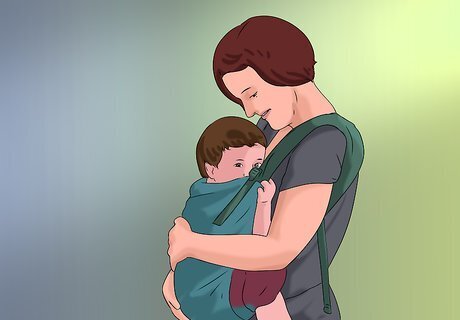
Hold your child in an upright position. When your child lays down, it is harder for them to breathe; holding them in an upright position may ease their respiration. Hold your child on your lap and keep them seated upright. If your child is not an infant, use pillows to prop them up as they sleep. However, this is not safe for infants as the pillow can pose a suffocation risk. Try placing babies in an infant seat to see if this helps their breathing. Do not leave your child unattended in their infant seat, though, and do not let them fall asleep in the seat, as this can pose a suffocation hazard.
Treating Other Symptoms
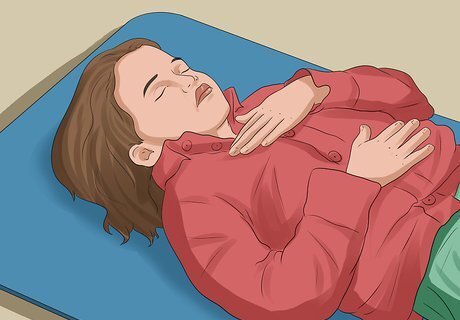
Encourage your child to rest as much as possible. This may be difficult when they are not feeling well, but sleep and rest is essential to healing. Read to the child or let them watch tv or movies. You can also play soothing music, use a white-noise machine, or rock them to help them fall asleep. If your child is having a really hard time sleeping, encourage them to rest as much as possible while they are awake. Try to keep them still to prevent them from overexerting themselves. Consider sleeping in the same room as your child. It might make them feel better to have you close, and you will also be able to monitor their breathing to ensure it doesn't worsen.
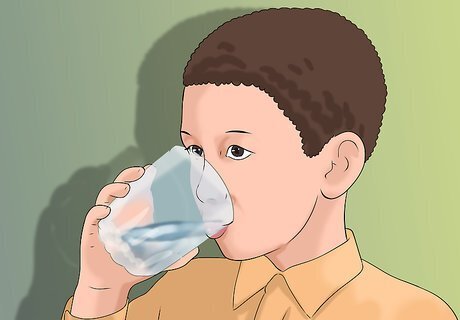
Give plenty of fluids to your child. It is crucial to keep your child hydrated, and warm, clear fluids may help to loosen any mucus that is stuck in your child's throat. Warm, clear fluids like broth are best. For babies, water, breast milk, or formula is best. Consult their pediatrician for tips to ensure they don't get dehydrated, which can happen rather quickly. You can also give your child a frozen fruit pop, but keep in mind it doesn't have enough liquid to be considered a “fluid.”
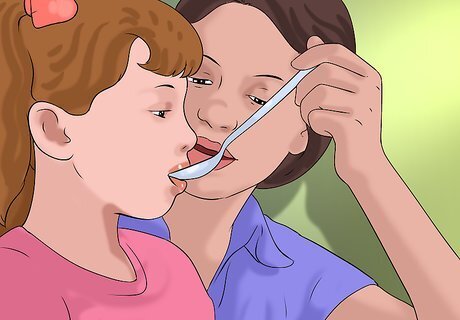
Try over-the-counter medications to help reduce a fever. These may also help if your child has other pains such as a headache or sore throat. Pain-killers and fever reducers may help your child to feel more comfortable. Use acetaminophen (Tylenol) or children's ibuprofen (if your child is over 6 months old). Make sure to follow the dosing instructions, and buy products that are designed for your child's age. Do not give aspirin to children under 12, as this can cause a rare but potentially fatal disease called Reye syndrome.
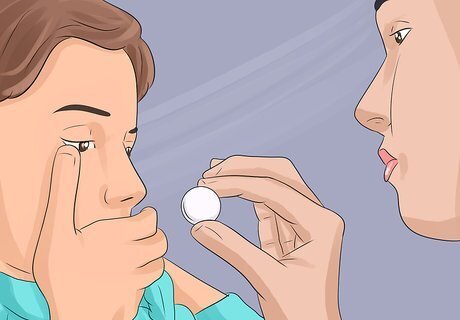
Skip the cough medicines or decongestants. These will not help to ease the symptoms of croup and can cause serious side-effects. Cold medicines should also be avoided in children who are under the age of 2.
Seeking Medical Help
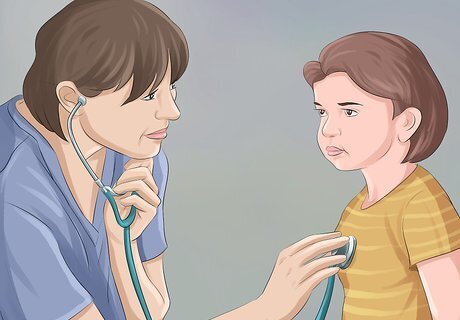
Visit a doctor if the symptoms lasts longer than 48 hours. Most cases of croup are able to be treated at home, but if your child is still sick after 48 hours, has stridor, or if their symptoms worsen, call your doctor. Most cases of croup are caused by a virus, so antibiotics will not be effective. However, your doctor may be able to prescribe medicines to ease your child's breathing and treat their symptoms. Ask whether a steroid (glucocorticoid) would be beneficial for your child. These steroids help to reduce inflammation in the airways and make it easier to breathe. Inquire if a nebulizer treatment (breathing treatment) would be beneficial. A nebulizer vaporizes the medicine which the child then breathes in through a mask. This is a common treatment for children with croup.

Ask your doctor if blood tests or x-rays are necessary. These tests would help to confirm the diagnosis of croup and to make sure your child doesn't have another illness with similar symptoms. These are rarely necessary, but if your child's condition is worsening, discuss these tests with your doctor. Usually, using steroids or other medications to ease breathing and treat the cough is sufficient to help your child begin to feel better. Croup will usually resolve on its own, so treating the symptoms is enough. However, blood tests and x-rays are an option if your child does not seem to be getting better.
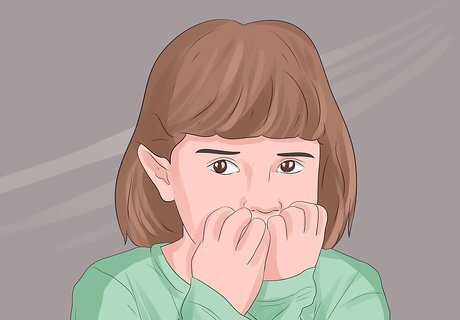
Know when to seek immediate medical attention. If your child is dehydrated or has very labored breathing, they need immediate medical help. Signs of dehydration include reduced urination, few or no tears when crying, a dry or sticky mouth, or sunken eyes. If your child has these signs, or if they are having extreme difficulty breathing, take them to the emergency room or call for paramedics. Seek immediate medical attention if your child has bluish tinges to lips or fingernails, cannot swallow due to a swollen throat, or if they show signs of retraction (their neck or chest muscles pull in when they breathe).


















Comments
0 comment